Abstract
The fluorescence at 370 nm of the 7-methylguanosine residue (m7G) is found to be quenched when the base residue is involved in a stacking interaction with the adenosine residue in the cap structure m7G5' pppA of an eukaryotic mRNA. On the basis of the observed degree of quenching, the amounts of the stacked and unstacked forms in the cap structure have been determined at various temperatures and pH's. It has been found that at pH 6.2 effective enthalpy and entropy in the unstacked leads to stacked change are delta H degrees = 4.4 +/- 0.1 kcal/mole and delta S degrees = - 14.3 +/- 0.2 e.u., respectively. The pka value for the m7G residue is found to be 7.7 at 10 degrees C and 7.3 at 30 degrees C. The stacked structure seems to be less favourable in the deprotonated form that occurs in the higher pH solution. A similar analysis of some other cap structures indicates that the stacked form in m7G5' pppN structure is favourable if N is a purine nucleoside or a 2'-O-methylpyrimidine nucleoside but not for an unmethylated pyrimidine nucleoside.
Full text
PDF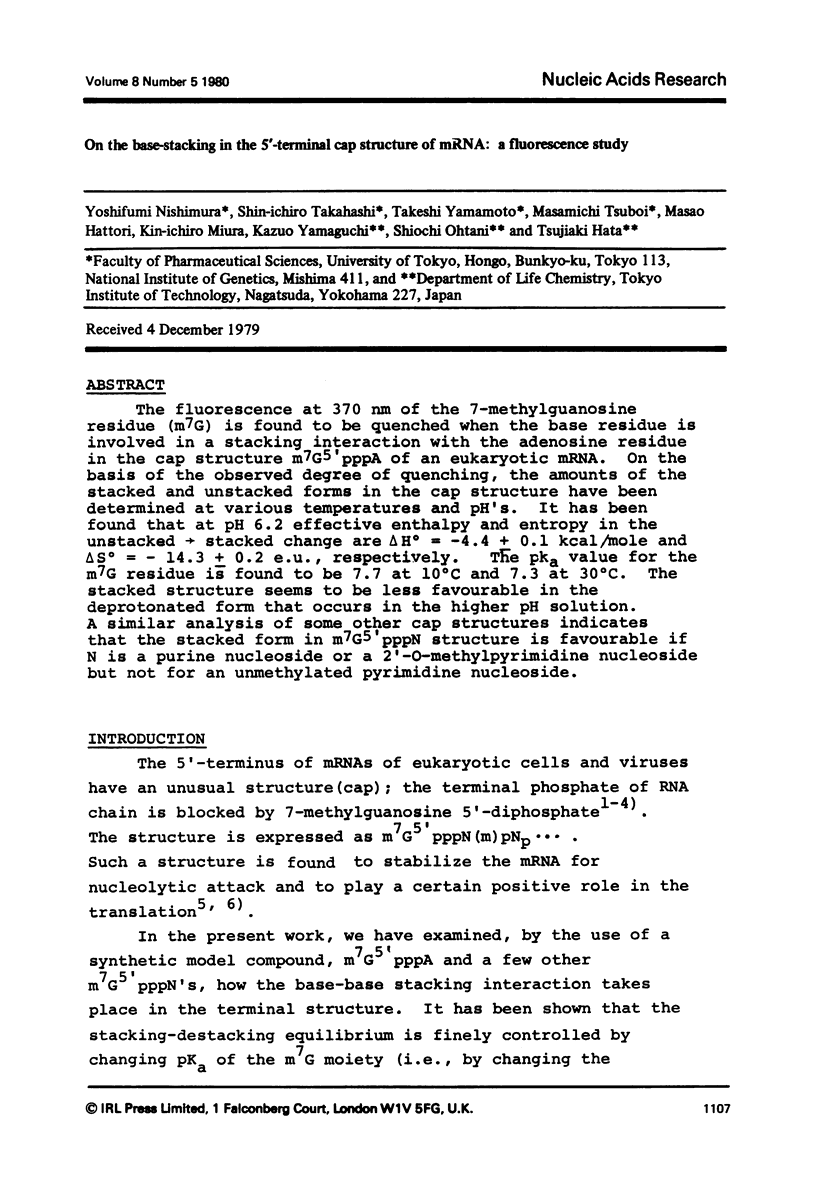
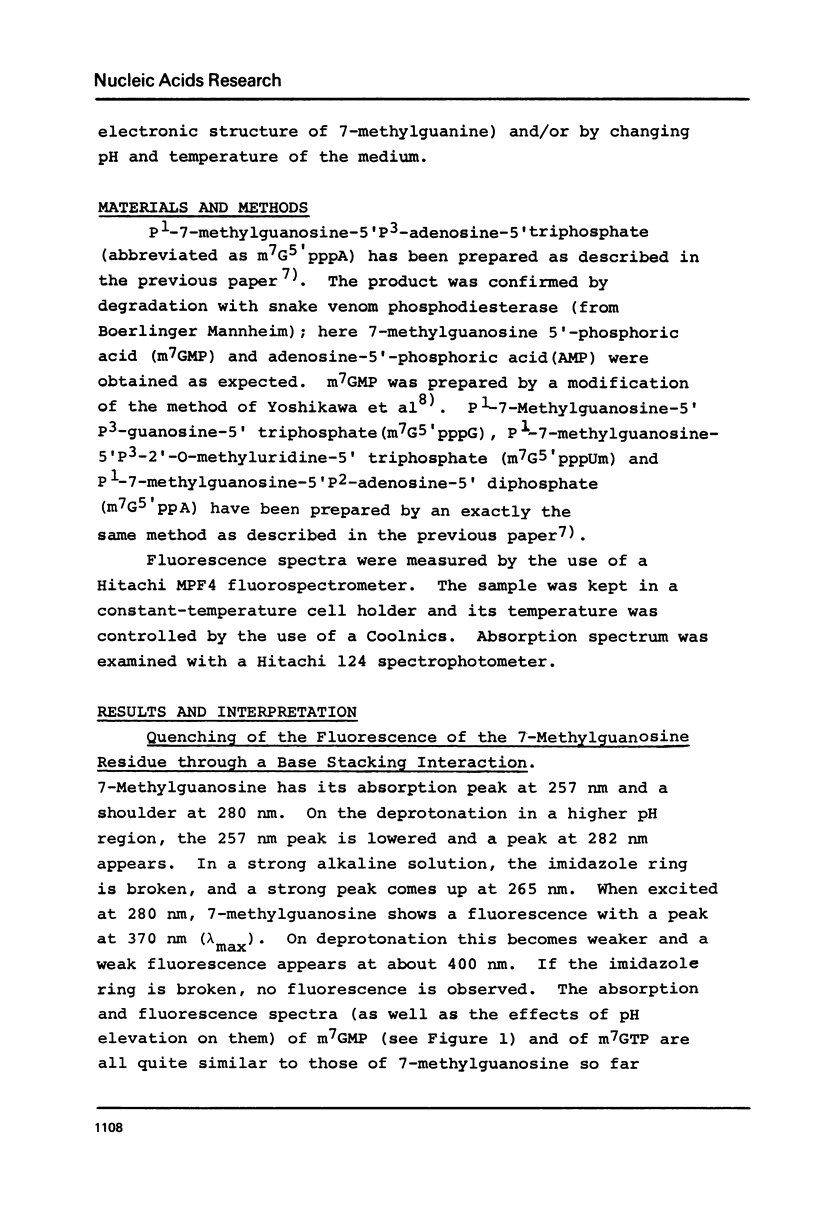
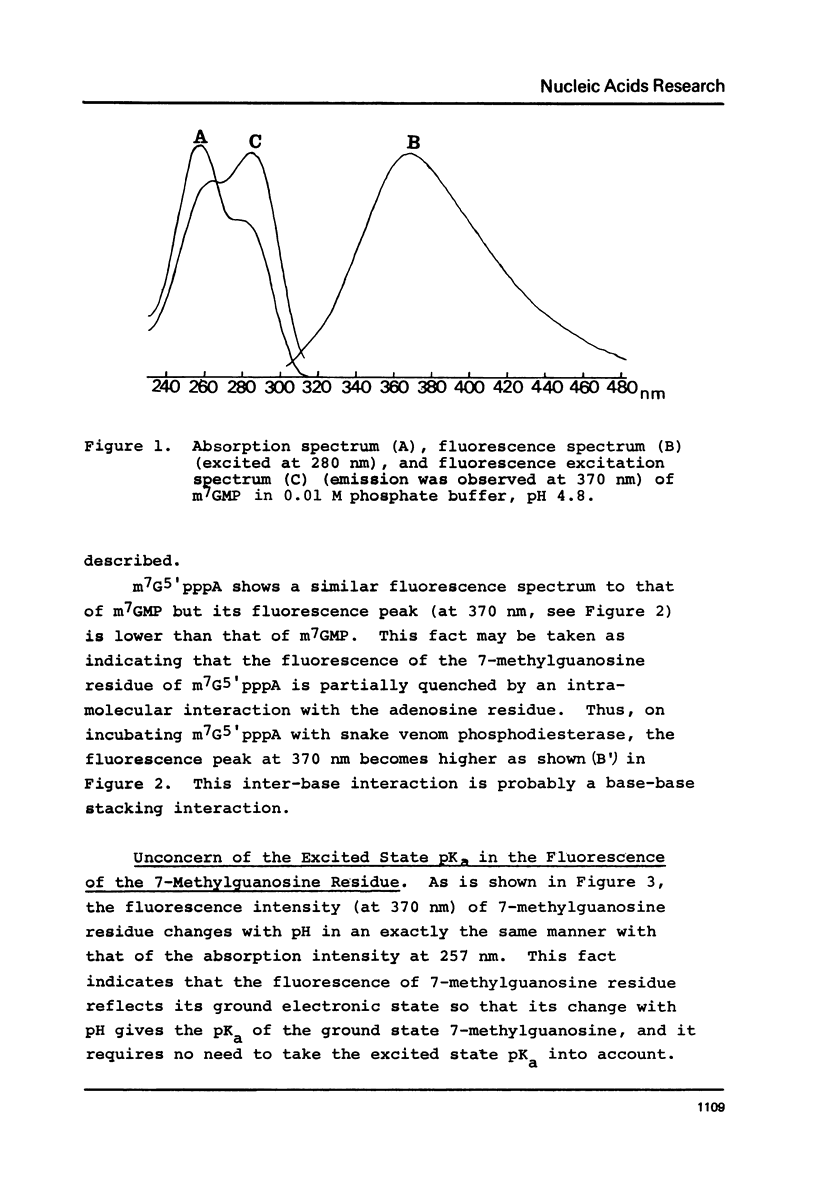
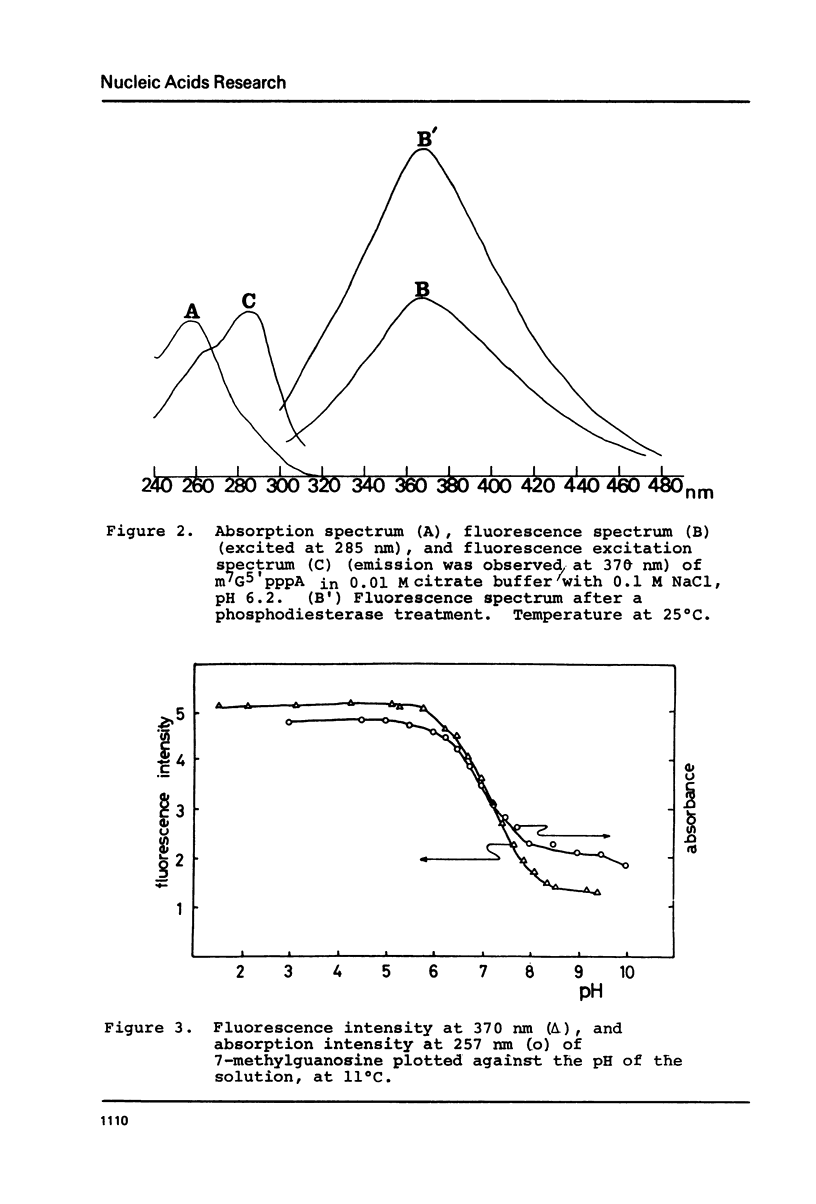
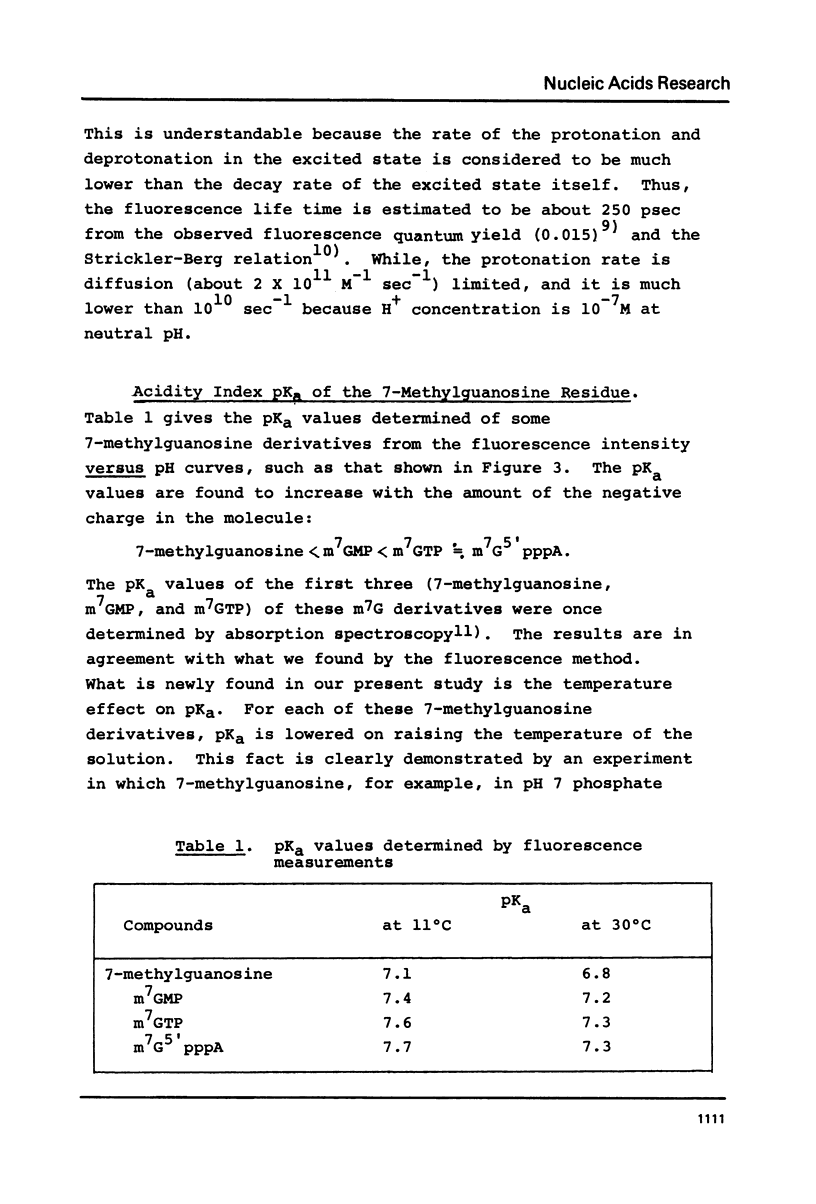
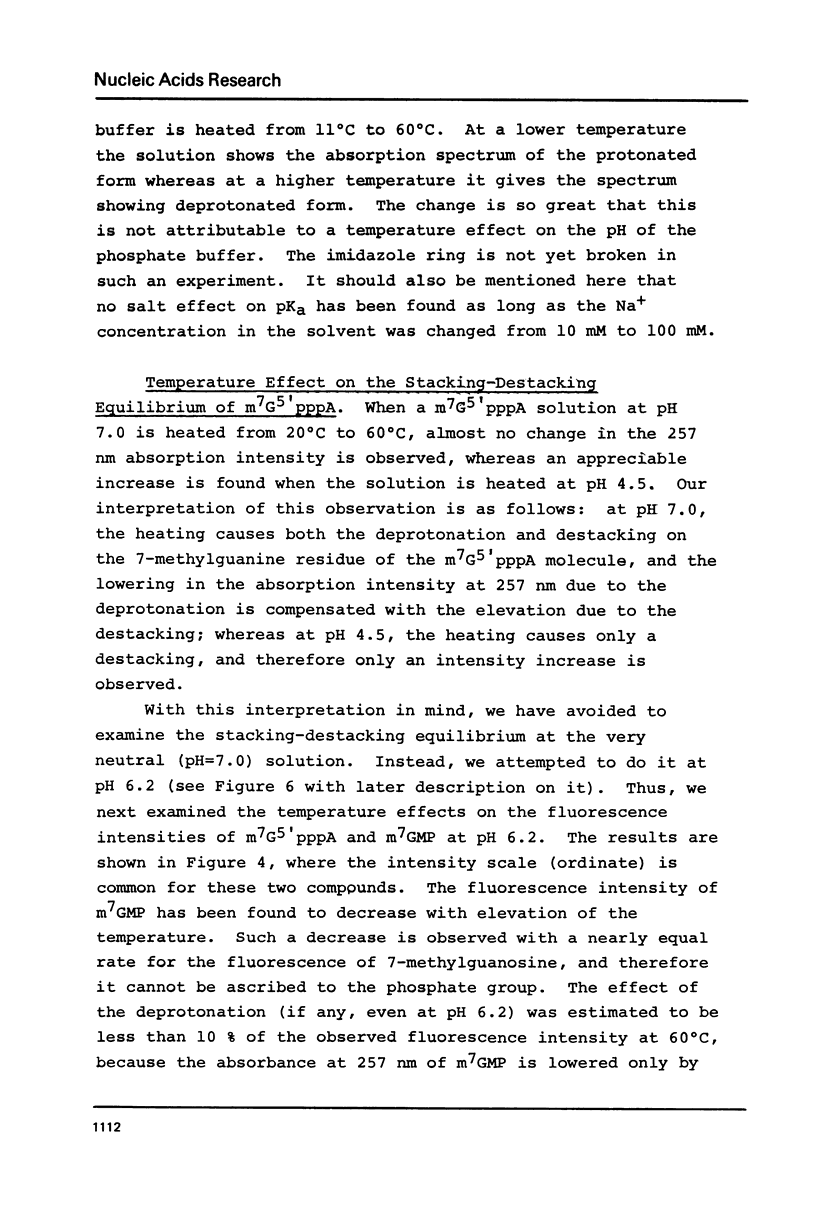
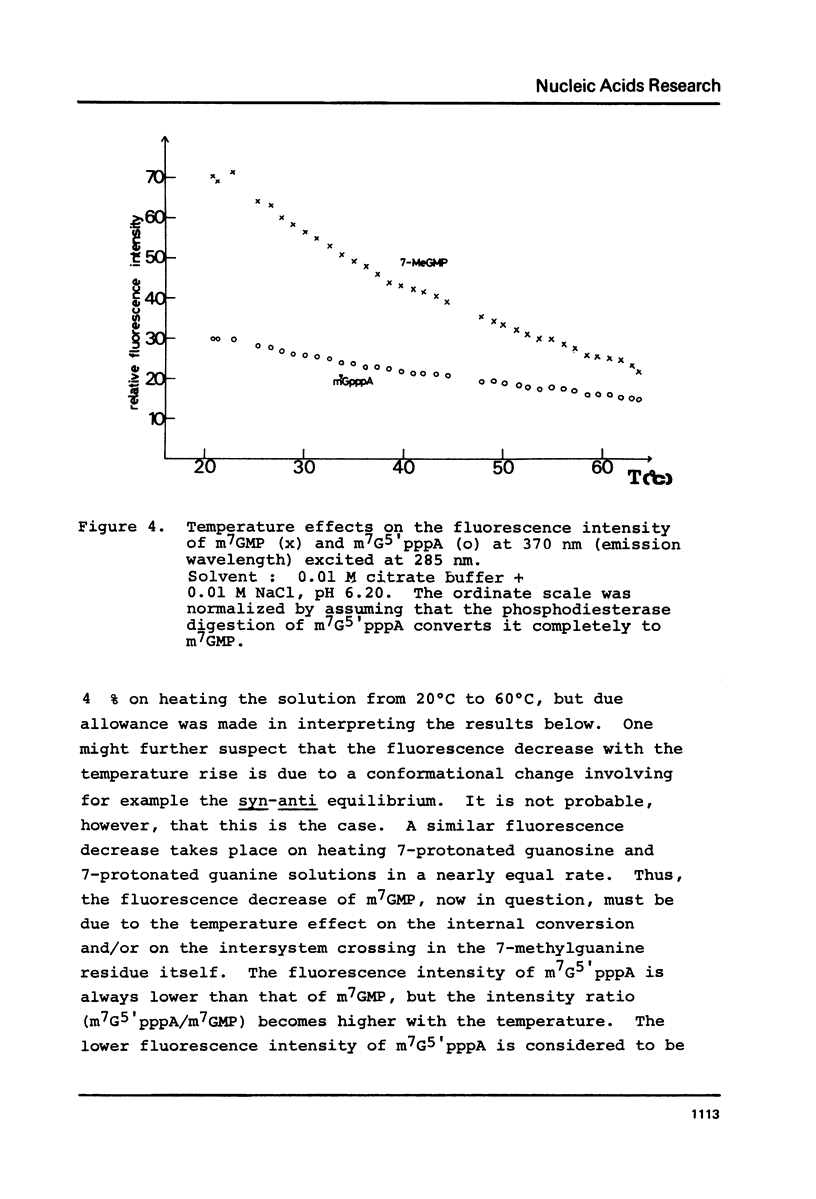
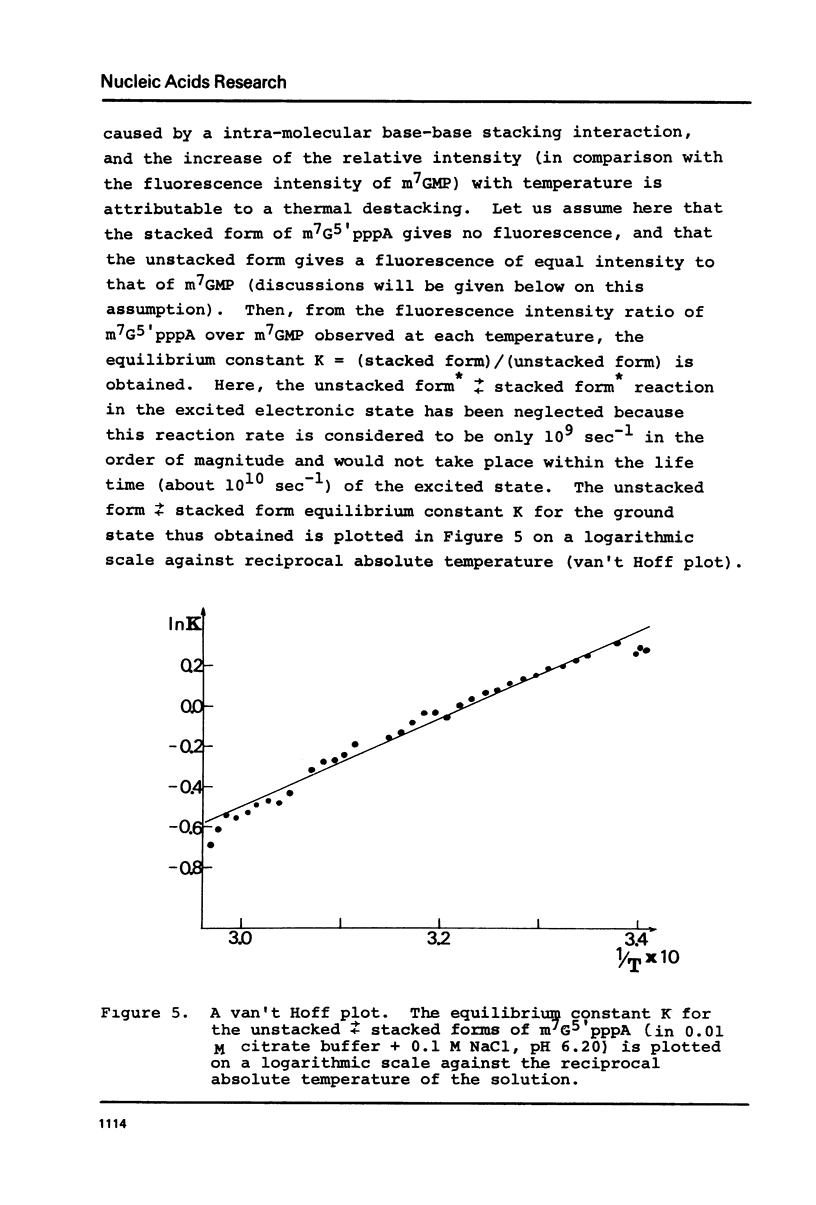
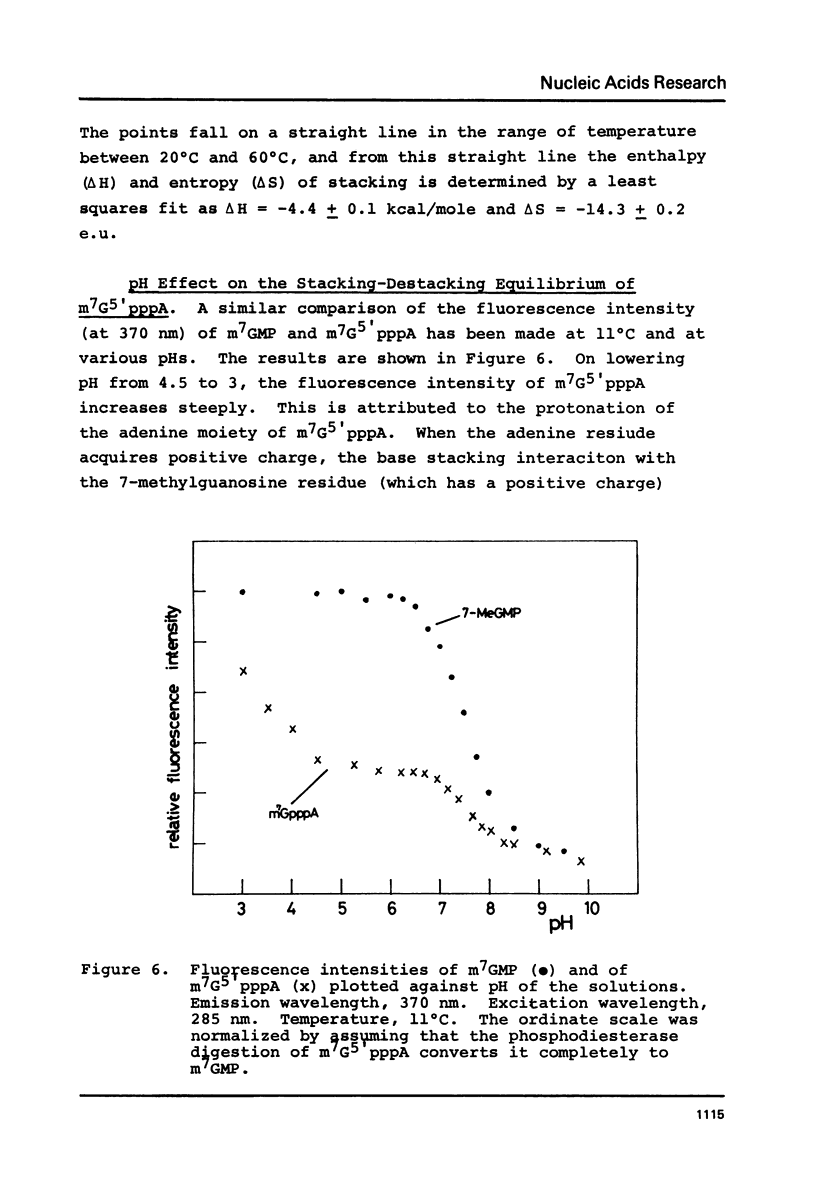
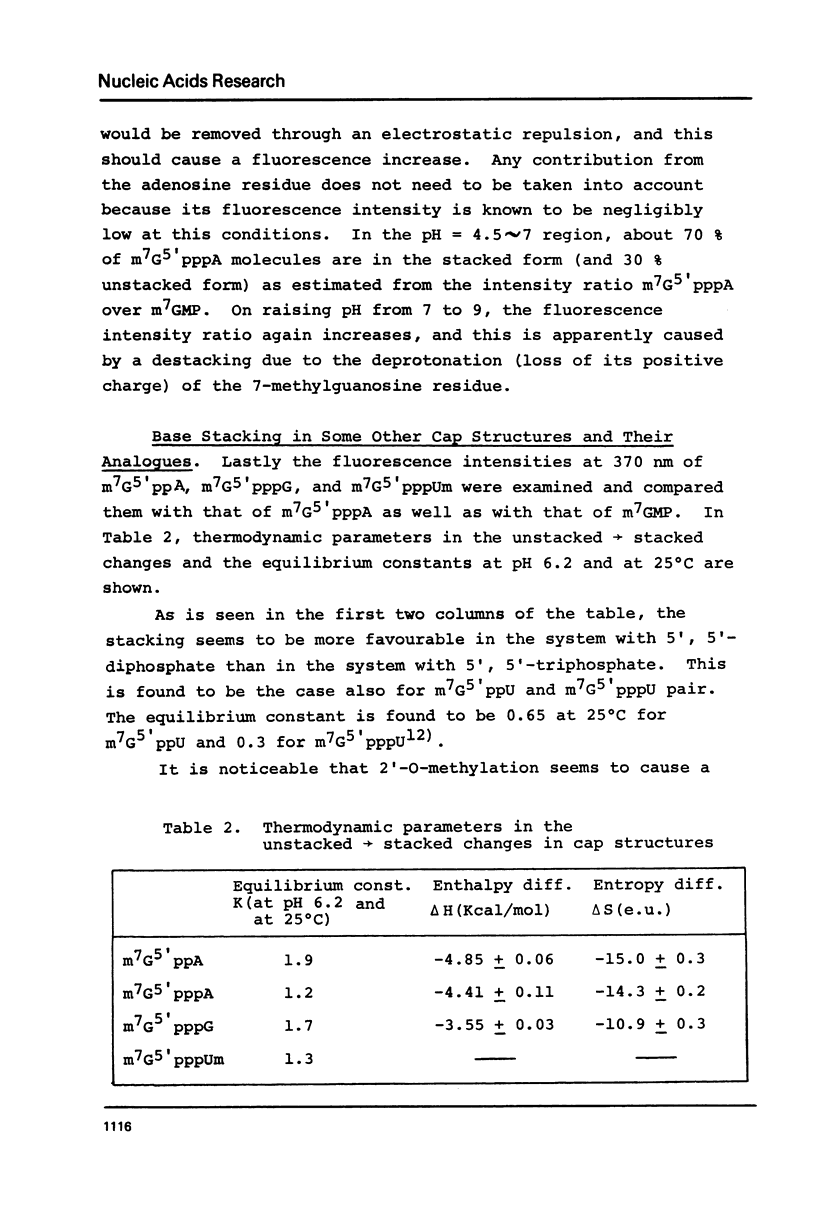
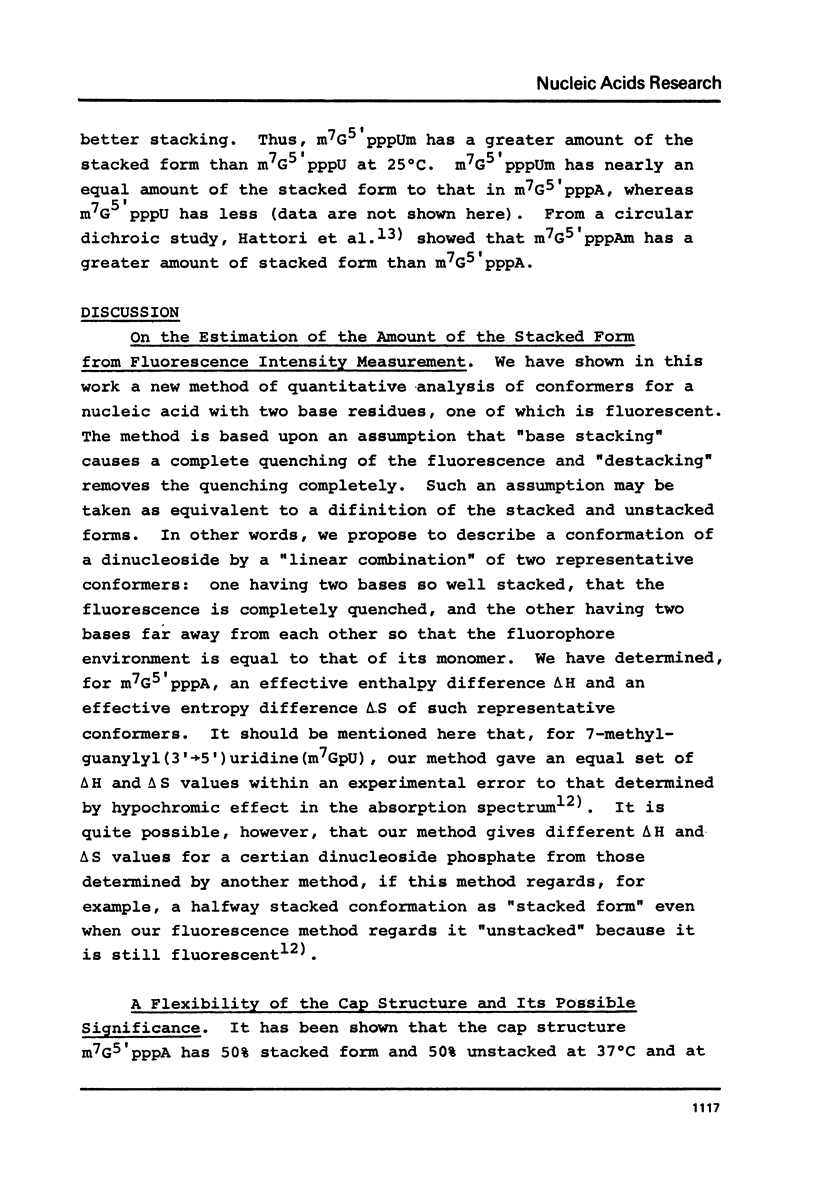
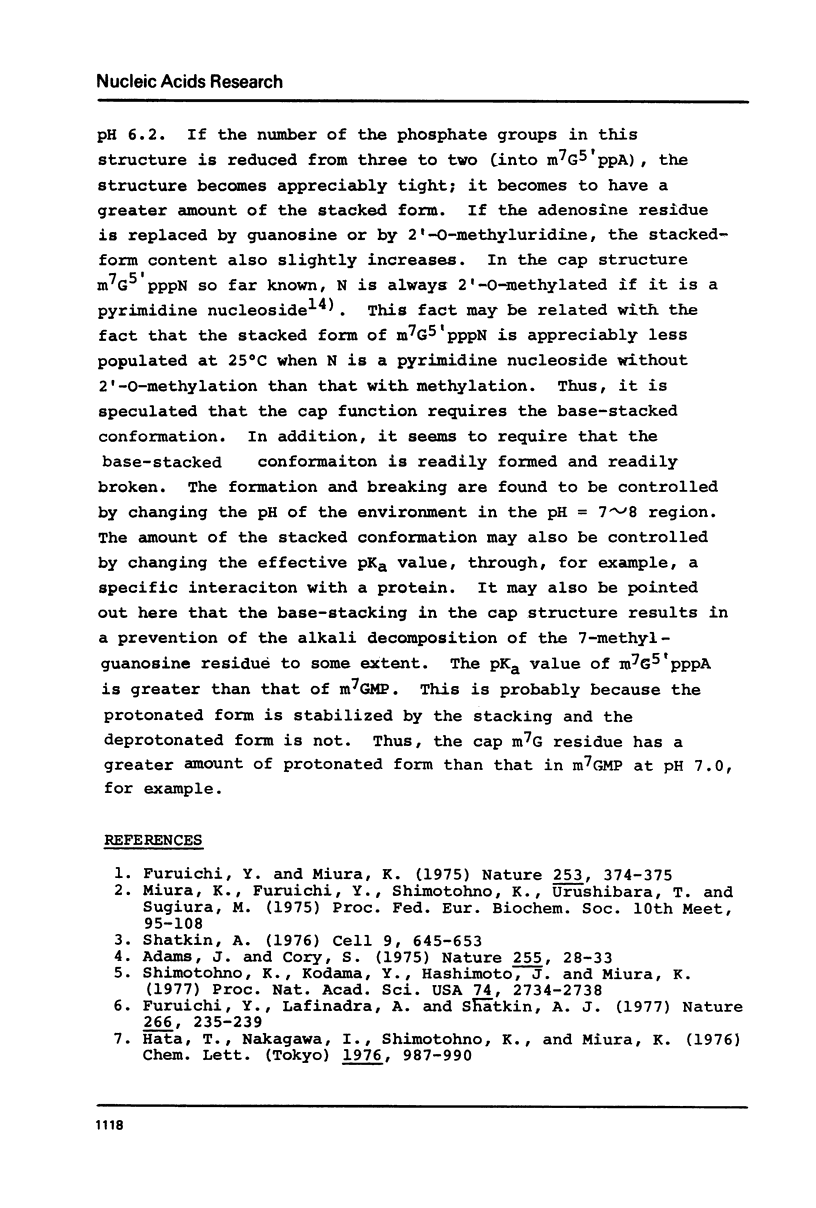
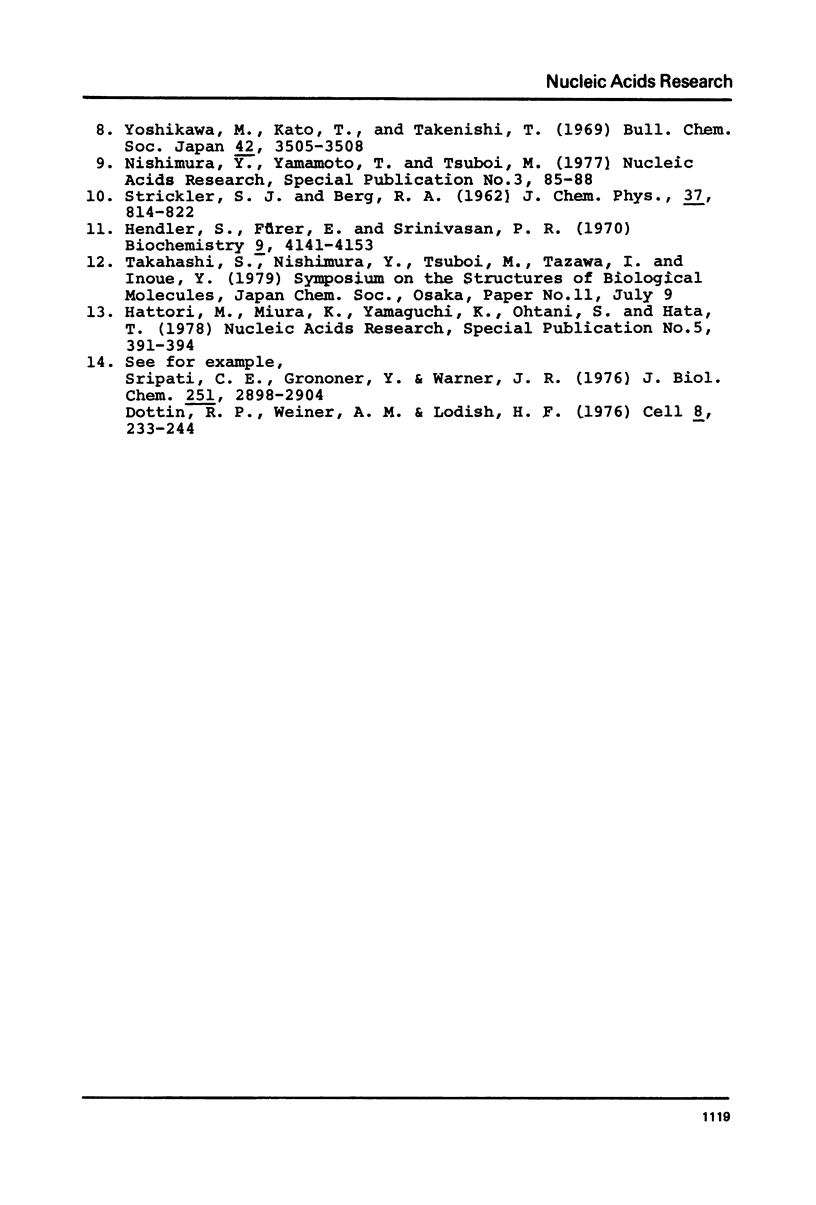
Selected References
These references are in PubMed. This may not be the complete list of references from this article.
- Adams J. M., Cory S. Modified nucleosides and bizarre 5'-termini in mouse myeloma mRNA. Nature. 1975 May 1;255(5503):28–33. doi: 10.1038/255028a0. [DOI] [PubMed] [Google Scholar]
- Dottin R. P., Weiner A. M., Lodish F. 5' terminal nucleotide sequences of the messenger RNA's of Dictyostelium discoideum. Cell. 1976 Jun;8(2):233–244. doi: 10.1016/0092-8674(76)90007-6. [DOI] [PubMed] [Google Scholar]
- Furuichi Y., LaFiandra A., Shatkin A. J. 5'-Terminal structure and mRNA stability. Nature. 1977 Mar 17;266(5599):235–239. doi: 10.1038/266235a0. [DOI] [PubMed] [Google Scholar]
- Furuichi Y., Miura K. A blocked structure at the 5' terminus of mRNA from cytoplasmic polyhedrosis virus. Nature. 1975 Jan 31;253(5490):374–375. doi: 10.1038/253374a0. [DOI] [PubMed] [Google Scholar]
- Hendler S., Fürer E., Srinivasan P. R. Synthesis and chemical properties of monomers and polymers containing 7-methylguanine and an investigation of their substrate or template properties for bacterial deoxyribonucleic acid or ribonucleic acid polymerases. Biochemistry. 1970 Oct 13;9(21):4141–4153. doi: 10.1021/bi00823a017. [DOI] [PubMed] [Google Scholar]
- Shatkin A. J. Capping of eucaryotic mRNAs. Cell. 1976 Dec;9(4 Pt 2):645–653. doi: 10.1016/0092-8674(76)90128-8. [DOI] [PubMed] [Google Scholar]
- Shimotohno K., Kodama Y., Hashimoto J., Miura K. I. Importance of 5'-terminal blocking structure to stabilize mRNA in eukaryotic protein synthesis. Proc Natl Acad Sci U S A. 1977 Jul;74(7):2734–2738. doi: 10.1073/pnas.74.7.2734. [DOI] [PMC free article] [PubMed] [Google Scholar]
- Sripati C. E., Groner Y., Warner J. R. Methylated, blocked 5' termini of yeast mRNA. J Biol Chem. 1976 May 25;251(10):2898–2904. [PubMed] [Google Scholar]


